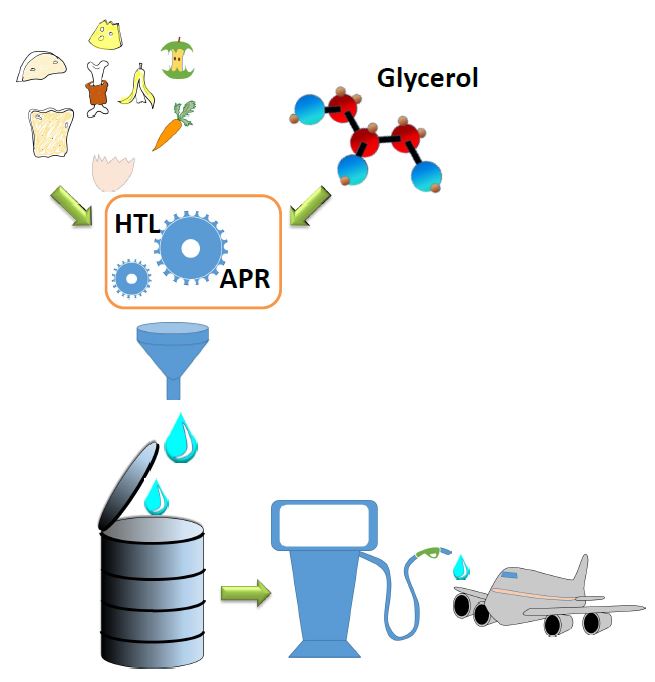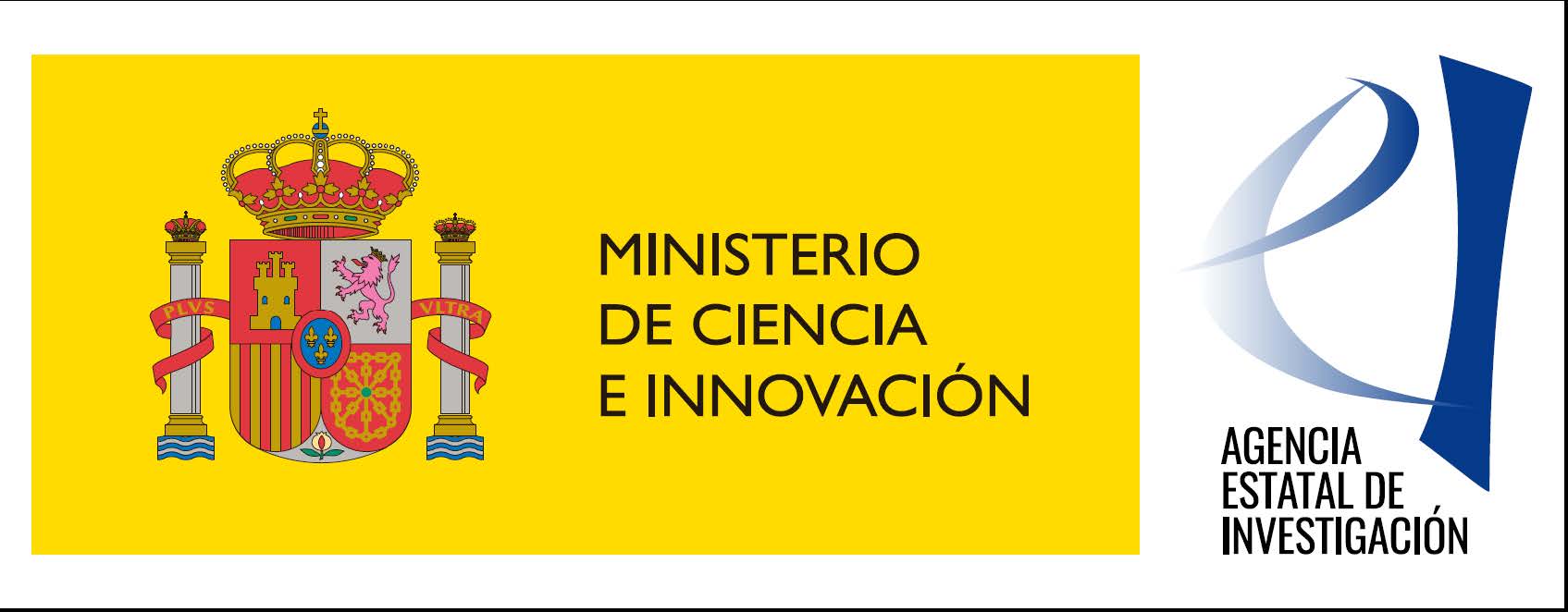
- Start date: 01/09/2021
- End date: 31/08/2024
- Coordinator: Lucía García, Joaquín Ruiz
- Type: —
- Funding: 272.250 €
Air transport produces 2% of all human-induced carbon dioxide (CO2) emissions. In order to limit emissions and contribute to human wellbeing, airlines have been taking different actions to decrease their impact. In this context, this project studies sustainable aviation fuel production from biomass and wastes. Glycerol and municipal solid wastes have been selected as feedstocks.
Glycerol, the main by-product of biodiesel manufacturing, is going to be converted to hydrogen by aqueous-phase reforming. For this, selective and stable catalysts will be studied and developed to maximize hydrogen production. Hydrogen is important as clean fuel and also because its participation in high number of chemical reactions involved in sustainable aviation fuel production. Glycerol is also intended to convert mainly to ketones, such as acetol and acetone, due to its usefulness in aldol condensation, a previous stage that allows obtaining hydrocarbons in the kerosene range. The conversion of glycerol into ketones will be carried out through the process known as hydrogenolysis, since it has the purpose of producing liquid compounds.
Municipal solid wastes and specifically their organic fraction, it is going to be processes by hydrothermal liquefaction to generate several fractions: organic liquid product, aqueous phase, gaseous fraction and carbonaceous residue. The viability of these fractions to obtain sustainable aviation fuels will be studied. Moreover, municipal solid wastes will be studied for their conversion by induction.
Proyecto PID2020-114985RB-I00 financiado por:

